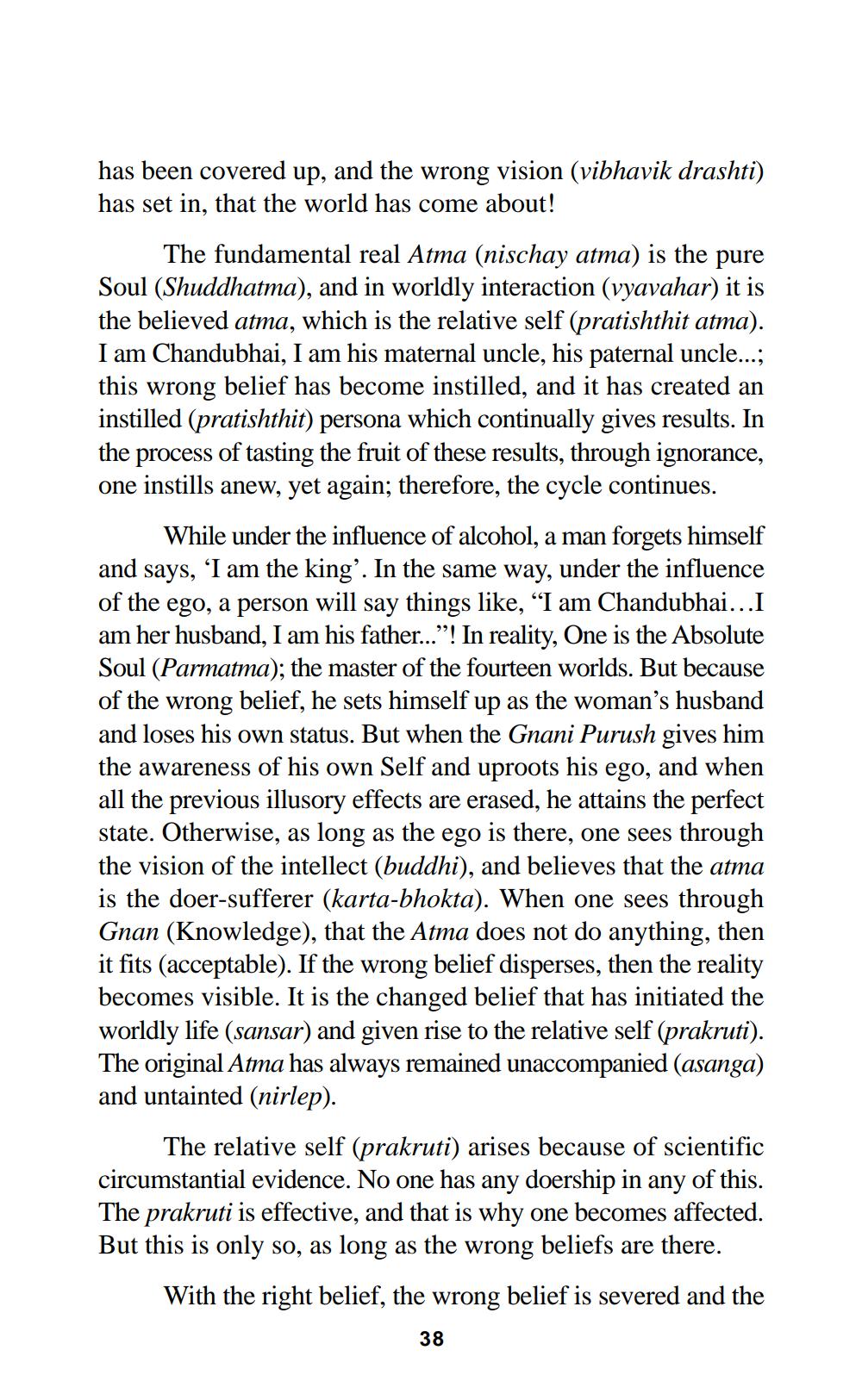________________
has been covered up, and the wrong vision (vibhavik drashti) has set in, that the world has come about!
The fundamental real Atma (nischay atma) is the pure Soul (Shuddhatma), and in worldly interaction (vyavahar) it is the believed atma, which is the relative self (pratishthit atma). I am Chandubhai, I am his maternal uncle, his paternal uncle...; this wrong belief has become instilled, and it has created an instilled (pratishthit) persona which continually gives results. In the process of tasting the fruit of these results, through ignorance, one instills anew, yet again; therefore, the cycle continues.
While under the influence of alcohol, a man forgets himself and says, “I am the king'. In the same way, under the influence of the ego, a person will say things like, “I am Chandubhai...I am her husband, I am his father...”! In reality, One is the Absolute Soul (Parmatma); the master of the fourteen worlds. But because of the wrong belief, he sets himself up as the woman's husband and loses his own status. But when the Gnani Purush gives him the awareness of his own Self and uproots his ego, and when all the previous illusory effects are erased, he attains the perfect state. Otherwise, as long as the ego is there, one sees through the vision of the intellect (buddhi), and believes that the atma is the doer-sufferer (karta-bhokta). When one sees through Gnan (Knowledge), that the Atma does not do anything, then it fits (acceptable). If the wrong belief disperses, then the reality becomes visible. It is the changed belief that has initiated the worldly life (sansar) and given rise to the relative self (prakruti). The original Atma has always remained unaccompanied (asanga) and untainted (nirlep).
The relative self (prakruti) arises because of scientific circumstantial evidence. No one has any doership in any of this. The prakruti is effective, and that is why one becomes affected. But this is only so, as long as the wrong beliefs are there.
With the right belief, the wrong belief is severed and the
38




